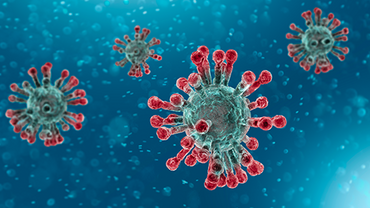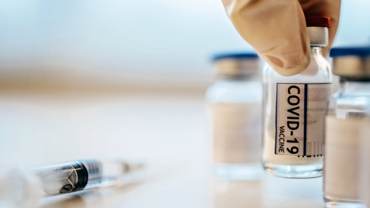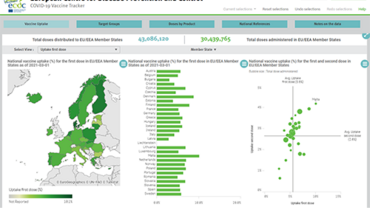Interim analysis of COVID-19 vaccine effectiveness against Severe Acute Respiratory Infection due to SARS-CoV-2 in individuals aged 20 years and older – fourth update
This update reports on one of the ECDC multi-country studies that is centred around the hospitals setting and severe disease, with the aim of assessing vaccine effectiveness against severe acute respiratory infection (SARI) due to laboratory-confirmed SARS-CoV-2 within the ECDC Vaccine Effectiveness, Burden and Impact Studies infrastructure (VEBIS). This is a case–control study using the test-negative design. As the study is ongoing, this report contains updated results following those previously published on 8 October 2021, 20 January 2022, 14 March 2022, and 8 November 2022. Compared with the previous report, the data presented include a longer period of Omicron dominance, from 21 December 2021 to 30 September 2022.
Executive summary
Key facts
- This update reports on one of the ECDC multi-country studies that is centred around the hospital setting and severe disease, with the aim of assessing vaccine effectiveness against severe acute respiratory infection (SARI) due to laboratory-confirmed SARS-CoV-2 within the ECDC Vaccine Effectiveness, Burden and Impact Studies infrastructure (VEBIS) [1,2]. This is a case–control study using the test-negative design. As the study is ongoing, this report contains updated results following those previously published on 8 October 2021 [3], 20 January 2022 [4], 14 March 2022 [5], and 8 November 2022 [6]. Compared with the previous report, the data presented include a longer period of Omicron dominance, from 21 December 2021 to 30 September 2022.
- This report includes vaccine effectiveness estimates for first booster doses of COVID-19 vaccines and relative vaccine effectiveness estimates of first booster dose, using those with complete primary series vaccination at least 150 days before onset as the reference group.
- As of 18 November 2022 (data submission deadline for the current analysis), a total of 13 EU countries were participating in the multicentre vaccine effectiveness study: Belgium, Croatia, Czechia, France, Germany, Hungary, Ireland, Lithuania, Luxembourg, Malta, Portugal, Romania, and Spain.
- The COVID-19 vaccine effectiveness estimates presented in this report are pooled estimates from seven countries: records from six countries were excluded as fewer than five cases or controls or fewer than 20 total patients were reported after applying exclusion criteria.
- The adjusted vaccine effectiveness of first booster dose vaccination in preventing SARI hospitalisations associated with laboratory-confirmed SARS-CoV-2 infection was moderate at 54% (95% CI: 45–61%), and relative to complete primary series vaccination adjusted relative effectiveness of the first booster dose was 29% (95% CI: 14–42%).
- The results presented in this report suggest a lower relative vaccine effectiveness for the first booster dose vaccination among younger adults (20–59 years of age) compared with older adults (60–79 and ≥80 years), albeit with wide overlapping confidence intervals.
- Vaccine effectiveness and relative vaccine effectiveness of the first booster dose vaccination remained high in the first four months after vaccination, but reduced substantially after four months. A similar pattern was observed for 60–79 and ≥80 years of age groups. Limited sample size did not allow vaccine effectiveness estimation of time since booster dose for the youngest age group (20–59 years).
- A longer time since receiving a booster dose coincided with onset during the dominance of BA.4/BA.5 Omicron sublineages, and it is challenging to attribute the apparent decrease in vaccine effectiveness to either the impact of waning immunity alone or to the immune escape properties of these Omicron sublineages.







